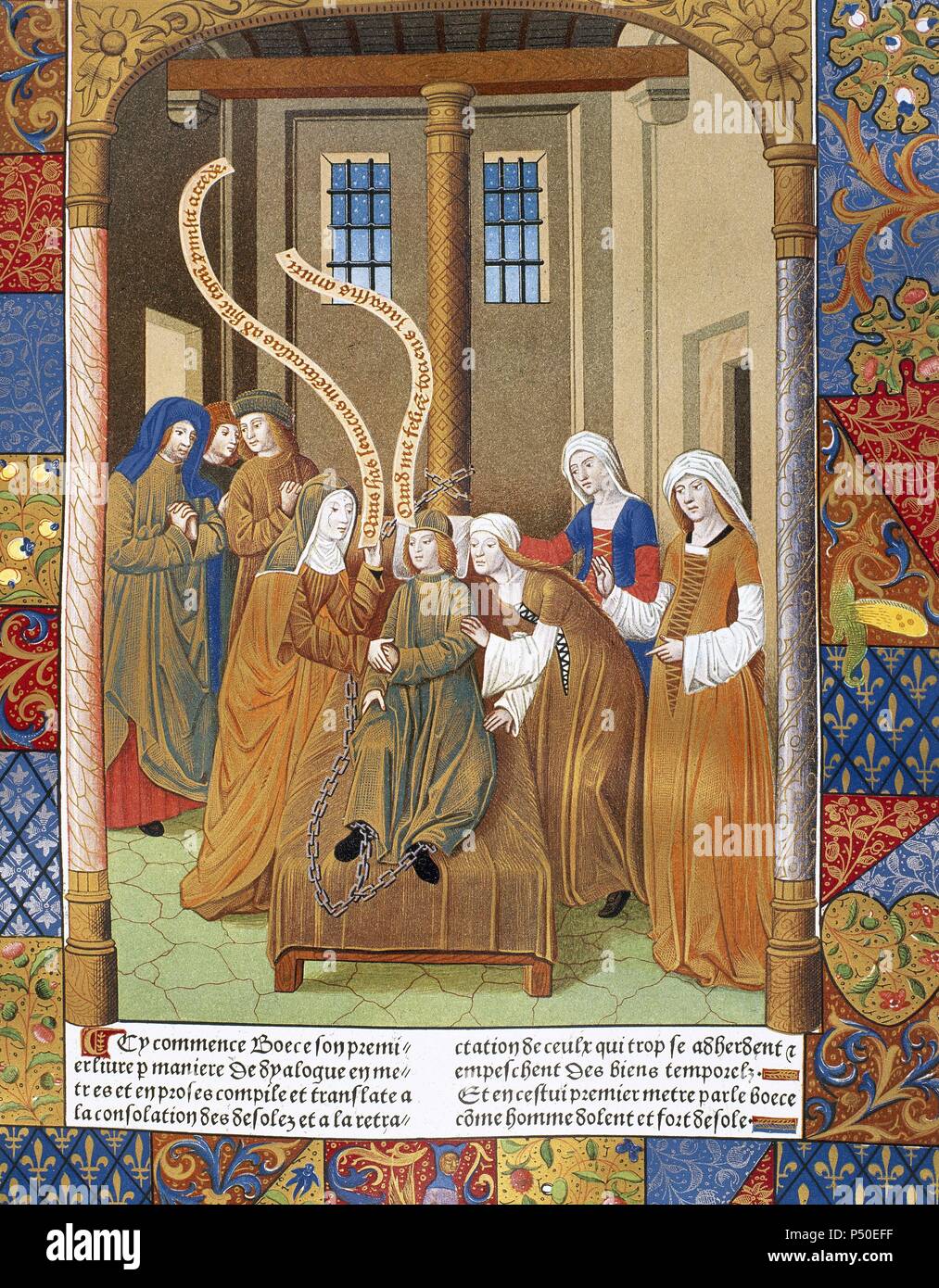
She explains that true happiness cannot be found in things that fortune controls, such as wealth or fame. Philosophy continues to explain the nature of fortune to him. In actuality, the idea that evil is entirely free to "achieve their desires" truly makes the wicked less happy. Lady Philosophy starts her "cure" by pointing out his mistakes while Boethius cries that he is the victim of injustice.īoethius laments the lack of justice in the world, but philosophy maintains that good deeds are always rewarded-even when it appears that evil has won the day. She adds that she has come to him because he has a sickness that results from being overly dependent on material possessions and earthly things. Yet, Philosophy sees Boethius' grief and cannot bear it any longer. Philosophy is angry with Boethius because he was once very much into her but later abandoned her altogether. The embroidered letter 𝜋 (practical philosophy) on the lower edge of her dress and the letter 𝜃 (theoretical philosophy) on the collar is visible.

A beautiful lady shows up with her dress which is sewn with elegant and thin threads, yet some parts are frayed by people. After a sad poem, a light appears unexpectedly at the end of Boethius' bed.

He gradually loses his joy in life and devotes himself to poetry. Waiting to be executed in his cell for the alleged treason crime in prison in 534-535 AD, Boethius has been offended at the blind luck that once granted him freedom.

In this magnificent book, readers witness an internal confrontation between Boethius and his mind. This book by Boethius is a magnificent mix of prose, poetry, and dialogue written in an artistic style. The book, written by a former Roman Consul Boethius while he was imprisoned and awaiting his execution for alleged betrayal, is a cure-like conversation about concepts of happiness, free will and fate between Boethius and the embodiment of "Philosophy", who could not withstand Boethius' grief and sadness.

"What is it, then, poor mortal, that hath cast thee into lamentation and mourning? But the time, rather for healing than for lamentation!”


 0 kommentar(er)
0 kommentar(er)
